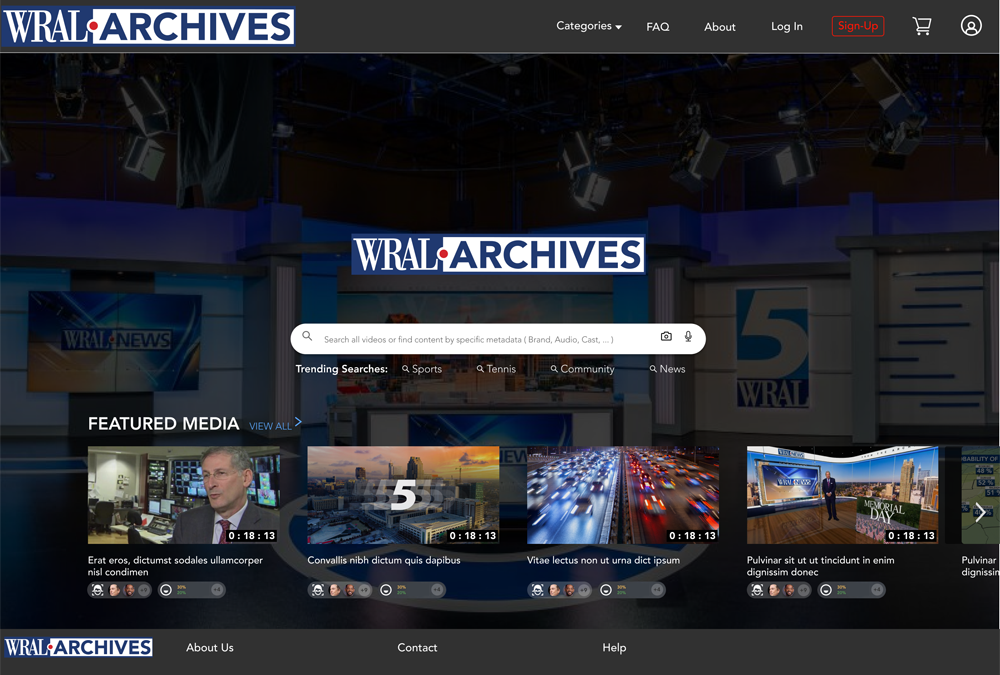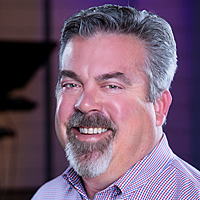
WRAL Moves To Digitally Save Its Identity

Around 30 years ago, an employee at WRAL, Capitol Broadcasting’s NBC affiliate in Raleigh, N.C., made what Jon Accarrino calls an “unfortunate decision” to toss roughly two decades of archival video into the trash. “Maybe they ran out of space or they just didn’t know what to do with it,” Accarrino says. “I’m not sure.”

Jon Accarrino
What Accarrino, Capitol’s VP of strategic business development, does know is that upon hearing of the loss, management was frustrated. They only grew more upset when they learned that, like many other stations looking to conserve storage space, WRAL had been taping over additional archival tapes with new content.
Accarrino says the boss “saw the legacy of the station and its history starting to disappear.” And though it took a while — as well as a sizable amount of cash — in 2015 WRAL digitized its remaining archives: 26,000 tapes, some dating back to 1976.
The initiative better ensured the safety and sustainability of the archives. It also set the stage for an even bigger technological undertaking, of which the benefits to WRAL and the community it serves will start to become known in a few months.
This Thursday, WRAL will announce a partnership with Eon Media, a Toronto-based tech company focused on artificial-intelligence video streaming solutions, that will generate boundless access to the station’s archives. The vast cache of now metadata-encoded video — amounting to half a million hours’ worth of content, according to Accarrino — will soon be made easily available to not only the WRAL newsroom, but also the general public. It will take the form of what WRAL calls a “digital storefront.”
Hitting the web with a soft launch toward the end of this year, and with a fully operational iteration arriving sometime in Q1 of 2023, WRALArchives.com will serve as a portal where community members, as well as “media clients and content creators across the globe,” according to a statement from Capitol, can purchase access to the archives. For a fee, the videos will be available for download; like on YouTube, interested parties can also stream content with ads.
The initiative creates a suite of revenue opportunities for WRAL. Accarrino says the station receives dozens of requests on a monthly basis from community members hoping to get their hands on old clips, not only of newscasts but other shows that have been beamed across WRAL airwaves. Soon they’ll be able to access the archives on their own through the portal, with an optimized search engine, and purchase or stream whatever videos they want. They’ll also be able to create NFTs from the clips.
“If somebody wants an NFT of their grandma in the news, we’re not going to stop them from acquiring that digital souvenir,” Accarrino says.
Furthermore, content creators, such as documentarians, will be able to buy videos from the archives for use in their own productions. However, the archives also make internal content production far more manageable than before.

Pete Sockett
Pete Sockett, WRAL’s director of engineering and operations and the project lead, envisions increased output particularly from the station’s investigative unit, making the most of what he calls the “online history museum of the city of Raleigh” that is the new station digital archive library.
None of this would be possible without the help of Eon Media and its artificial intelligence tools. Sockett says he and his team were “blown away” by the AI capabilities Eon Media presented once the company got a hold of the videos and encoded metadata throughout.
“The value of an archive is fully dependent on its metadata and searchability,” Accarrino says. “The AI, though it was expensive, was completely necessary for this project.”
Hiring human beings to scan through the archives — tapes of which were sometimes labeled with cryptic phrases like “Fire downtown, June 6, 1982,” says Sockett — and encode metadata to make the content searchable would have taken perhaps decades and not been worth the cost, Accarrino says. But for the Eon Media AI, he says, three-hour tapes were encoded in a few minutes.
Testing the new search engine on one occasion, Sockett says his team looked for footage of a “helicopter.” Among the many results, there was one standout: a years-old video of dubious quality shot on three-quarter-inch tape by the WRAL helicopter that happened to capture a competitor’s news helicopter off in the distance.
“When we saw that we were like, ‘Oh my gosh, this is just a whole different planet now,’” Sockett says.
In addition to such object identification, the AI’s facial recognition capabilities mean searchers of the archive can, among other feats, find every piece of footage that includes a particular WRAL reporter, even as they age across their career — helpful at a place like WRAL where some on-air talent has been with the station for four decades, Accarrino says.
The AI can even identify “sentiment,” Accarrino says. “So if I need a clip of ‘happy kids,’ the AI will go find that,” he adds.
There are even more capabilities made possible by the AI metadata-encoded archives. Among the most valuable, Accarrino says, is the station’s ability to conduct research on the quality of its content and how well it resonates with viewers, making it a “business intelligence tool.”
In the recent past, WRAL invested in a year-long study of its content, seeking insights from a consultancy team.
“The AI can do what that small team did in a year in just a couple minutes,” Accarrino says. “It allows us to be smarter, make faster decisions and reduces the amount of money we have to spend doing research.”
The station committed a major investment to the WRALArchives.com project, according to Accarrino. Sockett praises the Goodmon family, which still owns Capitol Broadcasting, for “believ[ing] in the technology that will drive the business,” and making such a sizable investment into it.
Will it prove worthwhile?
Says Sockett: “We’re going to find out.”
































Comments (0)